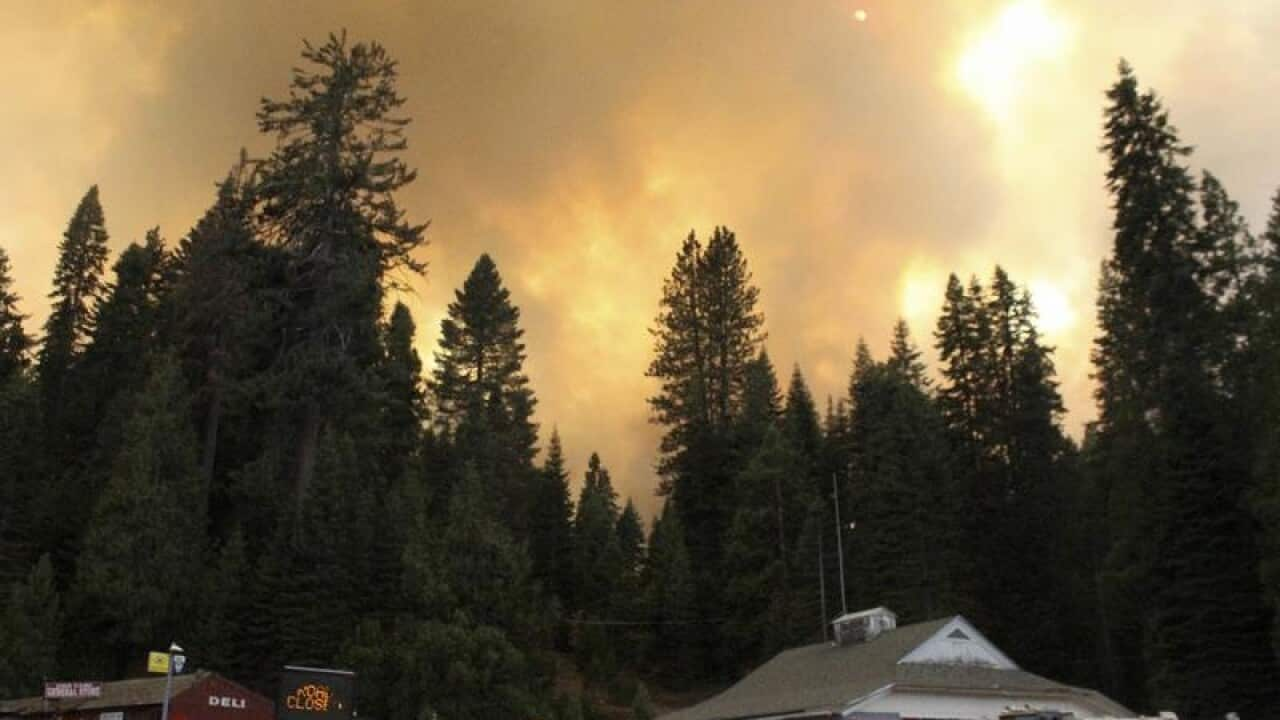A wildfire is raging in a neighbourhood northwest of Los Angeles, the second-largest city in the United States, after forcing the evacuation of nearby residents and threatening homes.
Fire officials in Burbank ordered residents of about 200 houses to leave immediately as the so called La Tuna Fire, a 810-hectare blaze, tore through nearby brush and triggered the closure of a section of the 210 Freeway, the Los Angeles Fire Department said in an alert on Saturday.
"Due to erratic fire behavior, driven by strong, gusting winds, we are not able to give a firm prediction on all areas potentially at risk," the department said.
The area was under a red flag warning from the National Weather Service until at least Saturday evening as temperatures were expected to climb above 100 degrees Fahrenheit (37.8 degrees Celsius) with strong winds and low humidity.
Photos and video on social media early on Saturday showed smoke billowing from the blaze as it lit up the sky.
"It's snowing ash from the Burbank fire, there was a huge pop followed by my power going out," said Cory Pratt, a filmmaker, on Twitter.
No injuries or property damage were reported, the Los Angeles Times reported.
More than 640 km north, the so-called Ponderosa Fire burned about 1500 hectares and destroyed 30 homes in Butte County, prompting authorities to issue evacuation orders to residents of some 500 homes in the area, officials said.
The blaze, which erupted on Tuesday from a campfire that was started outside a designated area, was 40 per cent contained.
California Governor Jerry Brown issued an emergency declaration on Friday to free up additional resources to battle the blaze.
The man charged with starting the fire, John Ballenger, made his first court appearance in Butte County Superior Court on Friday, District Attorney Michael Ramsey said.
Ballenger was charged with two counts of arson and was ordered held on a $1 million bond, Ramsey said.
In Montana, Governor Steve Bullock declared a state of disaster on Friday due to wildfires as dozens raged across tens of thousands of hectares during one of the worst fire seasons in state history.

